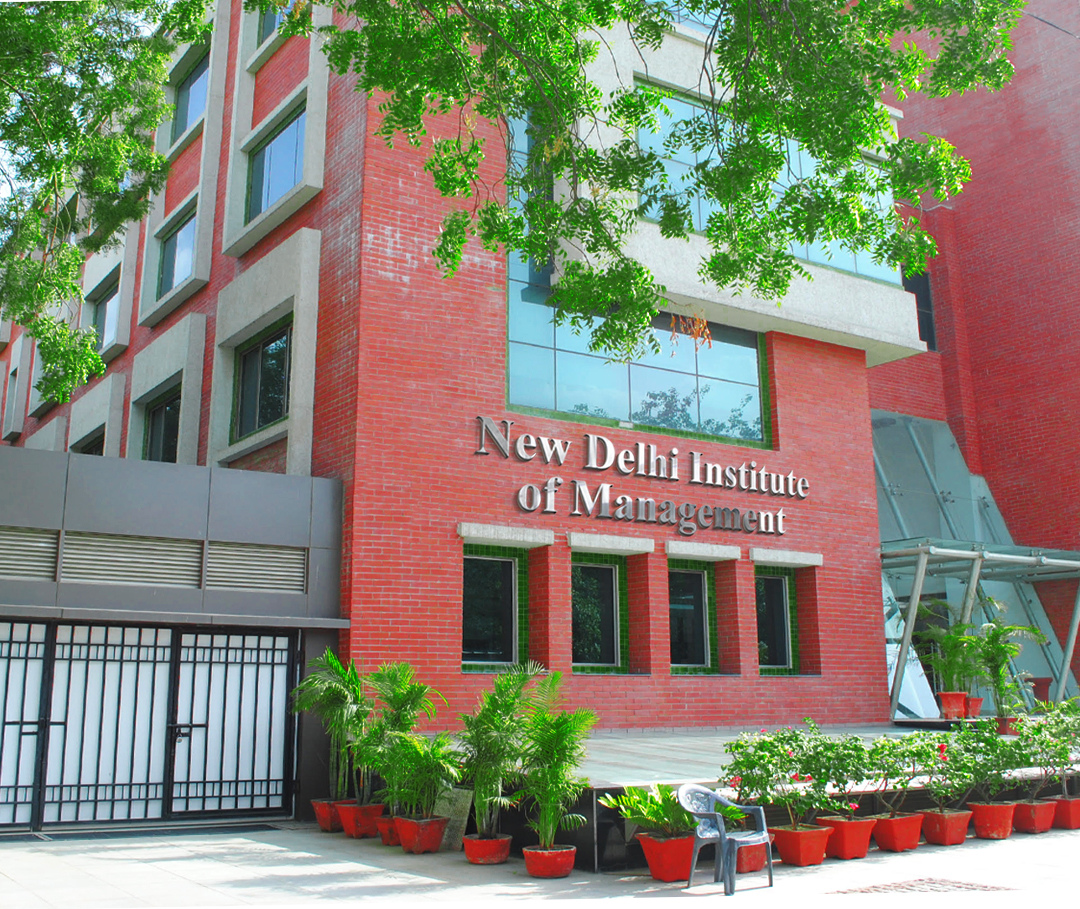Deciding between an MBA (Master of Business Administration) and an MCA (Master of Computer Applications) can be a challenging task, as both degrees offer distinct advantages, career paths, and specialized knowledge. The decision ultimately hinges on your interests, career goals, and previous educational background. In this article, we’ll explore both degrees in-depth and compare their benefits, career prospects, and challenges to help you make an informed decision.

Understanding MBA and MCA
What is an MBA?
An MBA is a postgraduate-level program designed to provide students with a deep understanding of business operations, management, and strategy. It focuses on developing skills related to leadership, decision-making, and business analysis. The program generally covers areas such as marketing, finance, human resources, operations, and entrepreneurship.
What is an MCA?
On the other hand, an MCA is a postgraduate degree focused on computer science, software engineering, and IT management. It is designed for individuals who want to pursue a career in the technology sector. Students learn programming, database management, web development, and systems analysis, among other areas in IT.
Key Differences Between MBA and MCA
Focus Areas
The most significant difference lies in the subjects and skills taught. MBA programs focus on business management, leadership, and organizational behavior. The curriculum is designed to develop managerial competencies, preparing students for leadership roles across various industries.
In contrast, the MCA program is for students interested in technology and computing. Its primary focus is on technical skills such as programming, data analytics, cloud computing, and IT management. While an MBA suits business professionals, an MCA is ideal for those pursuing a career in IT and software development.
Career Opportunities
MBA graduates can explore opportunities in industries like banking, finance, consulting, marketing, human resources, and entrepreneurship. They often assume managerial or leadership positions and work in areas such as business analysis, project management, and corporate strategy.
MCA graduates typically find roles in the IT sector, including software development, systems analysis, network administration, and database management. Roles include software engineers, IT consultants, and application developers, making MCA career paths more specialized but highly relevant to today’s tech-driven world.
Course Duration
Typically, an MBA program lasts for two years, but the duration can vary depending on whether the student chooses a full-time or part-time program or an accelerated one. On the other hand, an MCA usually takes three years to complete (for students with a bachelor’s degree in a non-technical field) or two years (for students with a computer science or IT background). Read below to learn the key difference between an MBA and an MCA:
| Parameters | MBA | MCA |
| Full Forms | Master of Business Administration | Master of Computer Applications |
| Duration | 2 Years | 2 Years |
| Curriculum | The curriculum of the MBA includes managerial economics, finance, accounting, business analytics, human resources, operations management, communication management etc. | The curriculum of MCA covers modules like programming languages, database management, algorithms, computer networks, web technologies, data structure etc. |
| Entrance Exams | Common exams include CAT, GMAT, XAT, etc. | Common exams include NIMCET, MAH MCA CET, etc. |
| Top Specialisations | MBA in Marketing MBA in Finance MBA in Human Resource Management MBA in Business Analytics MBA in International Business MBA in Healthcare Management MBA in Digital Marketing Information Technology MBA in Operations Management MBA in Supply Chain Management | MCA in AI & ML MCA in Data Science MCA in Cloud Computing MCA In Cyber Security MCA In Software development MCA In Web Technology MCA In System Management MCA In Mobile Application development MCA In Data Analytics. |
| Career Paths | Business Analyst Product Manager Marketing Manager Financial Analyst Human Resource Manager | IOS Developer AI Specialist Hardware Engineer Data Analyst System Analyst |
| Average Salary in India | 4 lakh to 50 lakh/annum (depending on experience and other factors) | 3 lakh to 25 lakh/annum(depending on experience and other factors) |
Pros and Cons of an MBA
Benefits of an MBA
- Versatile Career Opportunities: With an MBA, you can explore a variety of career options in different sectors, including finance, consulting, marketing, human resources, and management.
- Higher Earning Potential: MBA graduates tend to have higher salaries compared to other postgraduate degrees. The managerial roles often come with lucrative pay packages.
- Leadership Development: MBA programs are designed to develop leadership and decision-making skills, equipping you for executive-level positions.
- Networking Opportunities: An MBA offers immense networking opportunities with fellow students, alumni, faculty, and industry leaders.
- Expensive Tuition Fees: MBA programs can be quite expensive, especially in top-tier business schools, which might deter many potential candidates.
- Time-Consuming: Full-time MBA programs typically take two years, and during that time, you might need to put your professional life on hold.
- High Pressure: The academic rigor and pressure to perform in an MBA program can be intense, especially in competitive environments.
- Generic Skillset: MBA programs cover a broad spectrum of business topics, but if you’re looking for specialization in a particular field, it may not offer the in-depth knowledge that other programs might provide.
Pros and Cons of an MCA
Benefits of an MCA- In-Demand Skills: The tech industry is booming, and MCA graduates possess the technical skills needed to keep up with innovations like artificial intelligence, big data, and machine learning.
- Job Security in IT: The IT sector continues to grow, providing job security for skilled professionals. MCA graduates are in high demand for roles such as software developers, network administrators, and database managers.
- Hands-On Learning: MCA programs are often highly practical, with students gaining hands-on experience in coding, software development, and IT infrastructure.
- Quick Integration into the Workforce: Since the program focuses on technical skills, MCA graduates often find it easier to transition directly into the workforce without needing additional training.
- Narrower Career Path: While the demand for IT professionals is strong, an MCA degree limits you to the technology sector, unlike an MBA which provides a broader range of career options.
- Highly Competitive Field: The tech industry is highly competitive, and standing out among the many talented candidates can be difficult without specialization or additional certifications.
- Constant Need for Skill Upgradation: The tech industry evolves rapidly, and MCA graduates must continually update their skills to remain relevant in the job market.
Career Growth After MBA vs MCA
MBA Career Prospects MBA graduates enjoy diverse career opportunities across sectors such as finance, consulting, marketing, operations, and human resources. Starting from mid-level managerial roles, they often progress rapidly into senior leadership positions such as Business Head, VP, CFO, or even CEO. Their broad skill set and strategic understanding of business functions make them valuable assets across industries. The career path is typically dynamic, with numerous opportunities for growth and upward mobility.
MCA Career Prospects MCA graduates typically begin their careers in technical roles like software development, systems analysis, IT consulting, or database management. With experience and specialization in areas like cloud computing, cybersecurity, or data science, they can advance to more senior positions in technology leadership. Although the path to top executive roles may be more gradual compared to MBA graduates, the tech industry offers significant long-term growth, especially for those who continuously upskill and adapt to emerging technologies.
| Job Roles After MBA and MCA | |
| Common Job Roles for MBA Graduates | Common Job Roles for MCA Graduates |
| Business Manager | Software Developer |
| Marketing Director | System Analyst |
| Operations Manager | IT Consultant |
| Financial Analyst | Database Administrator |
| Human Resources Manager | Network Administrator |
| Entrepreneur/Startup Founder | Web Developer |
Which is More Suitable for You?
Career Goals and PreferencesChoosing between an MBA and an MCA largely depends on your long-term career goals. If you aspire to lead teams, make strategic decisions, and oversee the operations of an organization, an MBA might be a better choice for you. It equips you with leadership and management skills applicable across multiple industries, including finance, marketing, and consulting.
However, if your passion lies in technology, software development, or IT infrastructure, and you want to work directly with systems, programming, and software engineering, an MCA would suit you better. It provides you with specialized technical skills, which are highly valued in the rapidly growing tech industry.
When considering which path to pursue, think about whether you want to take on a leadership role in a variety of industries (MBA) or prefer to specialize in the technical aspects of the IT sector (MCA). Your preference for managing teams or working hands-on with technology will play a huge role in determining the right fit.
Academic Background ConsiderationYour academic background is another important factor in making this decision. If you already have a background in business or humanities, an MBA might be a smoother transition, especially if you are looking to develop leadership and management expertise. Conversely, if you have a background in computer science or mathematics, an MCA might align more with your skills and interests, as it builds on the foundational knowledge you already possess.
While some students may transition from non-technical backgrounds to MCA, it is generally easier for someone with a background in engineering or computer science to pursue an MCA. On the other hand, MBA programs accept students from a diverse range of academic disciplines, allowing individuals from any field to pivot into business administration.
MBA vs MCA: A Comparison of Global Recognition
Global Recognition of MBAThe MBA is one of the most recognized and respected degrees in the world. Business schools in the United States, Europe, and Asia are renowned for offering top-tier MBA programs, such as Harvard Business School, Stanford Graduate School of Business, and INSEAD. The MBA is considered a universal qualification that opens doors in various business fields globally.
Due to its global recognition, an MBA graduate can work virtually anywhere in the world. Whether you’re aiming for multinational companies, global consulting firms, or entrepreneurial ventures, an MBA can significantly enhance your international career prospects.
Global Recognition of MCAWhile the MCA is a highly respected qualification within the IT sector, it does not have the same level of universal recognition as an MBA. The degree is particularly valued in countries with a strong tech industry, such as India, the United States, and parts of Europe, but it may not carry as much weight in countries where the technology industry is still developing or less prominent.
However, with the global rise in demand for skilled IT professionals, MCA graduates can find lucrative job opportunities in the global tech industry. The MCA degree is recognized in many tech-focused countries, but it may not be as widely accepted or valued in industries outside of IT.
Conclusion: Making the Right Choice
Summing Up MBA vs MCABoth MBA and MCA are valuable postgraduate degrees, but they cater to distinct career paths. The decision between the two depends on your interests, career aspirations, and educational background.
- MBA: Best suited for those looking to pursue leadership roles in business, management, or entrepreneurship. The MBA offers versatile career options across industries and is globally recognized.
- MCA: Ideal for individuals passionate about technology, software development, and IT management. An MCA equips you with in-demand technical skills and provides a solid foundation for a career in the tech industry.
When making the final decision, consider where you see yourself in the next 5 to 10 years. If you’re more inclined towards managing business operations and leading teams, an MBA could be the right choice. But if you have a passion for technology and want to dive deep into the world of programming and IT, MCA would serve you well.
In the end, both degrees are highly regarded in their respective fields, and either one can lead to a rewarding career. Your decision should align with your strengths, career vision, and what excites you the most about the future.
Why NDIM is the Best MBA College in Delhi NCR
New Delhi Institute of Management (NDIM) is widely recognized for its academic excellence, industry integration, and student-centric approach. Here’s what makes NDIM a top choice for MBA aspirants:
- Accreditation & Recognition: NDIM is approved by AICTE and recognized by the Government of India. It consistently ranks among the leading business schools in Delhi NCR, reflecting its commitment to quality education.
- Experienced Faculty: The institute boasts a distinguished faculty comprising seasoned academicians and industry leaders who bring real-world insights into the classroom. Their mentorship bridges the gap between theory and practice.
- Strong Industry Interface: NDIM places a strong emphasis on corporate exposure through regular guest lectures, internships, and live projects. Students benefit from direct interaction with top business professionals, giving them an edge in the job market.
- World-Class Infrastructure: With modern classrooms, a well-stocked library, and cutting-edge computer labs, NDIM provides a dynamic and tech-enabled learning environment.
- Comprehensive & Tech-Enabled Curriculum: The MBA program at NDIM blends core management principles with emerging technologies. Specializations in marketing, finance, and HR are taught through a curriculum designed to meet the demands of the modern business world, preparing students for a future-ready career.
- Corporate Skills Development (CSD): NDIM’s dedicated CSD department ensures students are placement-ready. From resume building and mock interviews to activity-based learning sessions, the team works closely with students to enhance their employability and soft skills.
- India’s First Mentor B-School: NDIM is proud to be India’s first mentor-driven business school. Every student is paired with an industry mentor—top professionals from diverse sectors—who guide them throughout their MBA journey, offering personalized insights and real-world exposure.
- Excellent Placement Support: NDIM has a stellar placement track record, with students being placed in reputed companies across various industries. The proactive placement cell ensures students receive ample internship and job opportunities aligned with their career goals.
For more information about the MBA program and to apply, visit the official website of NDIM. To fill out the application form, visit the application form link here.


